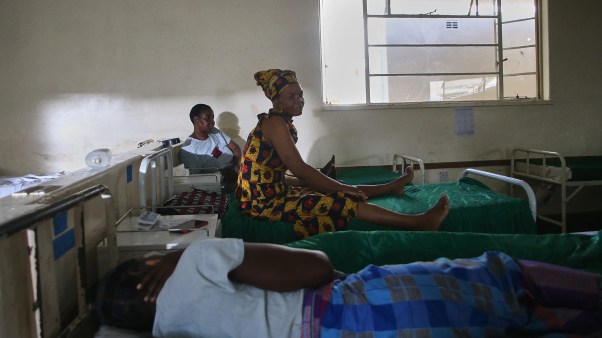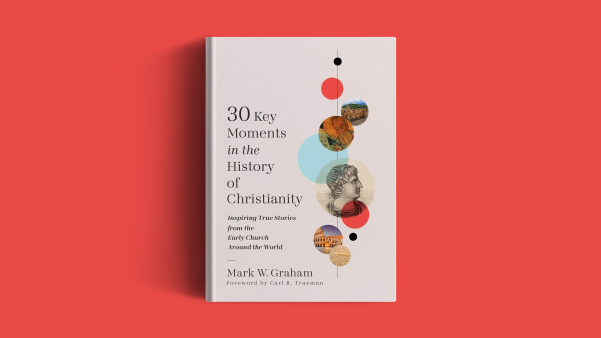In the film The Natural, baseball hero Roy Hobbs befriends young Bobby Savoy, the team bat boy, a friendship bonded when Roy helps Bobby carve his own bat. The film's tense climax finds Roy at the plate, bottom of the ninth, two outs, in the biggest game of the year. A pitch (fouled off) shatters his bat, and-you saw it coming-here's Bobby, offering his "Savoy Special." Roy smiles, takes the bat, and on the next pitch smacks a game-winning homer.
I like that story not only because I love baseball and happy endings, but for a deeper reason as well: It works as an analogy for the kind of teamwork so necessary between pastor and people. Their partnership, each helping the other, is a key ingredient to the success of church ministry.
Pastors are people-helpers. That's our job. We're trained for it. There are ample opportunities. Most of the time we're even good at it. But let's be honest-pastors need help, too. Without it, ministry can become lonely and joyless. Both professionally and personally, we need our people to help us.
Often the problem is that barriers are erected from both sides of the pulpit. They may exist because either pastor or people have been hurt. But I've been learning that in most cases, if we're willing to work at it, we can gain much-needed help from our people. But we need to help them help us.
1. Say Yes
It was definitely Saturday Afternoon Panic. My young son's hospital stay that week had run my normal schedule through a food processor. Tomorrow's sermon lay half finished on my desk. There was a Sunday school lesson to review, a bulletin to mimeograph, and, oh yeah, Sunday evening service. A ringing phone jarred me out of my daze; it was a woman who did occasional volunteer typing.
"Need help getting things ready for tomorrow?" she asked kindly.
"No, thanks. Things are under control, I think," was my half-sincere (and totally stupid) reply.
Her next question, offered in love but felt with a sting, has stayed with me for years: "Pastor, you do so much to help the church. When are you going to let us help you?"
Her question pinpoints a major barrier that keeps us from receiving help from lay people: We simply don't allow it. Too often, I fear, an unhealthy attitude of self-sufficiency has prevented the assistance many people genuinely want to give.
"I know I handle too much myself," a fellow pastor confessed to me. "Why? Maybe I don't want to give the idea I'm incapable or lazy or poorly organized. Also, if I do it myself, it will get done the way I want, without the hassle of following up on people. It isn't right, I know, but I keep falling into the trap."
From another angle, a lay leader in a nearby church once admitted to me, "My pastor scares me. His office is wallpapered with diplomas, and he's had all kinds of special training. He's a 'Top Gun'-together, always in control. How am I supposed to help him?"
It's true that some people put pastors on pedestals. It's equally true that many of us move in and turn on the Jacuzzi. We need to help dispel the distortions. I try to ask myself some tough questions periodically:
Am I allowing people to help me? How?
Do I honestly believe they have gifts, talents, and resources that I need? What are some examples?
Have I been encouraging their ideas and input, or have I usually promoted my own?
When we begin to work on the answers to these questions and allow our people to help us, we receive a wonderful benefit: friendship.
I gave lip service to my need for friendship in my first two pastorates, but I sense that I didn't allow it to happen. When Bill invited me to go canoeing on a Saturday afternoon, I hid behind Sunday preparations. When Tom called to set up a racquetball match, I begged off. At the time I figured I was being careful-not wanting to play favorites or put recreation before ministry duties. Now I see that I had foolishly erected a barrier. I think my ministry suffered for it.
But I've seen growth as well. I remember a recent spring afternoon when Terry, manager of a local poultry farm and chairman of our board, became my friend. Our meeting began with agendas and goal charts spread across his dining room table. But it soon ended when we found ourselves climbing to the top of his eight-story Harvester silo to enjoy the view and each other's company. Not a lot of deacon work got accomplished that day. A few years ago that would have bothered me, but not today. Allowing the help of friendship into my life is good for me and for them.
By the way, I've also taken the diplomas off my wall.
2. Identify Your Needs
Once we've begun allowing people to help, we need to identify the ways in which they can help us most. Sometimes this comes quickly; we already know where we need our congregation's assistance. But sometimes I need to think through two more questions from my "tough questions" list:
What are two or three weak spots in my ministry in which I could use assistance?
When was the last time I discussed one of those with my board or congregation?
I distribute a yearly performance profile to my board, and I've found it a helpful tool for locating areas where I need help. For example, a recent review revealed that visitation is a struggle for me. Not that I don't enjoy it, but I was having a tough time squeezing in all the calls I needed to make. My goal was three or four calls a week, but sometimes it was all I could do to make three or four a month.
Identifying that need and honestly admitting it to the board opened the door for help. Right now the board and I are working on a plan in which a couple of deacons would make some calls one night a week. The plan should strengthen us all.
3. Train the Helpers
When Roy Hobbs took the time to help Bobby carve a new bat, little did he realize how crucial that act would be for his own success. The same can be said for pastors: Helping people to help us involves hands-on training and personal involvement.
But how do you teach people to be pastor helpers? And whom do you train-everyone, or a select few?
To answer these key questions, let me explain a process I've found helpful. I view the process as moving inward through three concentric circles.
Circle one: the larger congregation. This is where I begin in training people to help me. I want my understanding of ministry, my view of the pastor's role, to be expressed in my sermons and teaching times. It sets a tone for the partnership I'm seeking.
I enjoy Wes Seeliger's Western Theology, a colorful analogy of ministry, and have explained it everywhere I've pastored. The analogy depicts the pastor as the cook on a cattle drive. He has a unique responsibility but is on an equal footing with the rest. The cook knows who he is, never confusing his role with that of the trail boss (God). The cook's main job is to help the others do their work. And he needs their help to do it.
That's what we need to say from our pulpits. Ephesians 4:11-12 ("to equip them for works of service") must be more than a passage for our annual report. Teaching that begins to train people to help.
From the pulpit we can give, in addition to this underlying theology, insight into some of our particular needs and how people might meet them.
One Sunday I preached a sermon on gifts in the body of Christ, and my basic theme was "We all can't do everything, but we all can do something." I described in a light-hearted way my frustrations as a handyman. I'm just not inclined toward mechanical skills. The next week a boiler blew in the parsonage basement, and water was everywhere. Because I had already admitted my weakness to the congregation, it was easy to ask for help. Some guys came over to fix the boiler, knowing my needs and now feeling free to put their gifts into action.
On another occasion, I mentioned in a sermon how meaningful keeping one day a week as a sabbath for God is to me. I explained how my sabbath must be taken not on Sunday but on Thursday, and how this day of rest prepares me for better ministry with them. Then I said that though I'm always available for times of genuine need, I appreciated greatly their sensitivity in holding other concerns until the next day. I didn't make a big deal of it but simply let them know this was a way they could help.
Of course, with more personal needs, the pulpit has limitations. The larger congregation cannot deal with certain situations. An example: When our son, Matthew, was born with spina bifida and faced life-threatening surgery, I found the pulpit limiting in expressing our family's emotional as well as practical needs. Detailing those needs and how people could help required more time than a pulpit allows, especially considering that preaching the Word is of prime importance. Therefore, I've learned to use the next smaller circle for more in-depth training.
Circle two: small groups. In small-group experiences such as Bible studies, prayer meetings, and even board and committee meetings, we can interact with others about needs and how they can help meet those.
Take a specific need we face-to put down our roots after a move. "We're gypsies in U-Haul vans," a pastor recently said to me with a sigh. "We're constantly uprooting ourselves, our wives, our kids. We often find ourselves far from childhood homes and relatives. Our people can really help us by becoming our surrogate extended family."
For that to happen, a pastor usually must sensitize people to his or her family situation but in a way that is natural and relaxed. That works best in a small-group setting.
"I consciously take a few minutes before our study time on Wednesday nights to share bits of what's happening in my family that week," says Paul Evan, pastor of the Minnetonka (Minnesota) Baptist Church. "That smaller group is made up of people who care deeply about the church and their pastor, and it's become a special time in which important bonds are created."
Bob Schultz, chairman of the same church, agrees. "We want to feel close to the pastor and his family. When the pastor is willing to let us in on joys and sorrows, it makes that possible. It's not unusual to find a group of our people at the Friday night high school football game to cheer on the pastor's son. In a gradual way he's helped us become 'family,' and that's good for everyone."
My wife and I discovered the power of a small group for help during the time just before and after Matthew was born. We met with a "growth group" of about a dozen people for a year and a half on Tuesday nights. We gathered for Bible study and prayer, and soon the group became a place where Pam and I could really open up about our marriage and lives. Then when Matthew was born-and ended up spending most of his first year in the hospital-they were there to help. One time Matthew was undergoing surgery all night, and Pam was unable to be with me in the hospital. Three or four of the people in the group, because they had gotten to know me as not only a pastor but also a person with needs, drove to the hospital. They found an all-night pizza place nearby, ordered some take-out pizza for me, and then managed to talk their way through security to bring me the pizza and be with me.
I treasure that memory, and it reminds me that often the best place to relate our needs is in a small, caring group.
Circle three: a few caring individuals. Each pastor is unique, with individual tastes, interests, hobbies, sense of humor, and family situation. Therefore, we can expect to find ourselves drawn to individuals in our congregations who share some of those characteristics. These people become the third and smallest of circles-the people whom the pastor can most directly train to help meet his professional and personal needs.
I need specific help in my current church. The building, constructed in the late sixties, is not accessible for people with handicaps. When we arrive on Sunday mornings and unload Matthew's wheelchair from the family van, we're faced with a set of steep stairs. Depending on the "family mood" (i.e. how late we're running that particular morning), it can be a stressful start to a busy day.
I've approached the situation in two ways. The first, a real disaster, is to pick up the chair, Matthew and all, and lug it up the steps. After foolishly doing that one Sunday morning, I preached with a stiff back and a rather sober expression.
I could have talked from the pulpit about the stairs, but that carried with it the potential for large-scale frustration or even guilt. I could have taken it to a smaller group, namely our trustees, but I feared coming across as "the pastor" with a complaint carrying all the weight that unique authority implies.
My second approach, which seems much wiser, was to discuss my need with Bruce, our church moderator, a bright young man with a love for the church. Bruce also has an 8-year-old daughter, Emily, who was born with cerebral palsy. Emily needs a walker to help her ambulate, and our stairs present a challenge for her as well. I have gone to Bruce to consider the problem because in him I find a naturally empathetic ear. I do not want to manipulate his friendship or presume upon his church position, but I believe God gives us special people in the congregation who can offer the help we need. Together, we're searching for a solution.
In time, we'll probably talk to the trustees, but the one-on-one conversation provides the comfort and clarity needed before that step.
Are there specific individuals who are in a position to offer distinct help to you and your family? Are there empathetic ears that will listen?
We may know we need the help of our people. We may even allow it. They may want to give it. But we must show them how. Training them in each of these circles-from the pulpit, in smaller groups, and with specific people-is a key factor in receiving the help we need.
4. Encourage Feedback
This final factor recognizes that receiving the help we need from our congregations is not a one-time experience. It must be ongoing, and therefore needs our regular encouragement.
Take another common need of pastors-the need to measure our effectiveness. We labor in a field in which it's extremely difficult to sense achievement. New York City Mayor Ed Koch is famous for his customary greeting, "Hi, how'm I doin'?" Pastors-often frustrated by the slippery, almost invisible task of shepherding souls-are eager to find out the same thing. As one pastor laments, "I'm giving my life to this thing, and I just don't know if it's making any difference."
Some churches seem to excel naturally in affirming their pastor's ministry. A black church in the Twin Cities holds an annual "anniversary of ministry" celebration for their pastor, encouraging each family to contribute "a dollar for every year" toward a gift. (Now there's a way to increase tenure!)
One church we pastored secretly organized a Pastor Appreciation Month filled with all kinds of goodies: tickets to a Red Sox game, a surprise "kidnap dinner," a children's party (complete with clown) for Matthew and his friends, even a Sunday to sit in my own church and listen to a guest speaker. When affirmations like that come, we certainly enjoy them and thank God for the kindness of his people.
But often they don't happen, and we're left wondering how our ministry is being received. Are there specific ways a pastor can encourage his people to give helpful feedback?
Many pastors have established a pastoral relations committee, a group of lay leaders with whom they can meet to evaluate performance, set goals, and discuss needs. The key to their success, however, lies in their spirit.
"Those groups work best," says John Anderson, a pastor to pastors in the Minnesota Baptist Conference, "when they are seen primarily as supportive rather than evaluative. A pastor needs a place to frankly discuss feelings about ministry and to get honest feedback about whether he's being effective. With the right people and the right agenda, a pastoral relations committee can be a great tool for the pastor."
The formal approach to encouraging people to help us, however, may be somewhat limited. If we're seen as continually pushing for assistance, our motives may be misconstrued. But our informal attempts to encourage people's help can be well received. The best: affirming them like crazy when it happens. A note in the mail, a word of thanks from the pulpit, a timely hug-all let them know we deeply appreciate the help we've been given. If we start assuming they'll help or take it for granted, we kill the spirit of cooperation. Saying thanks is a way to encourage assistance in the future.
Is my ministry a burden or a blessing? The answer, I've found, depends to a large degree on the extent to which I have learned to "help them help me." That's a genuine challenge, but since God's way is partnership, it's the only way to go.
Steve Harris is pastor of Maple Lake (Minnesota) Baptist Church.










